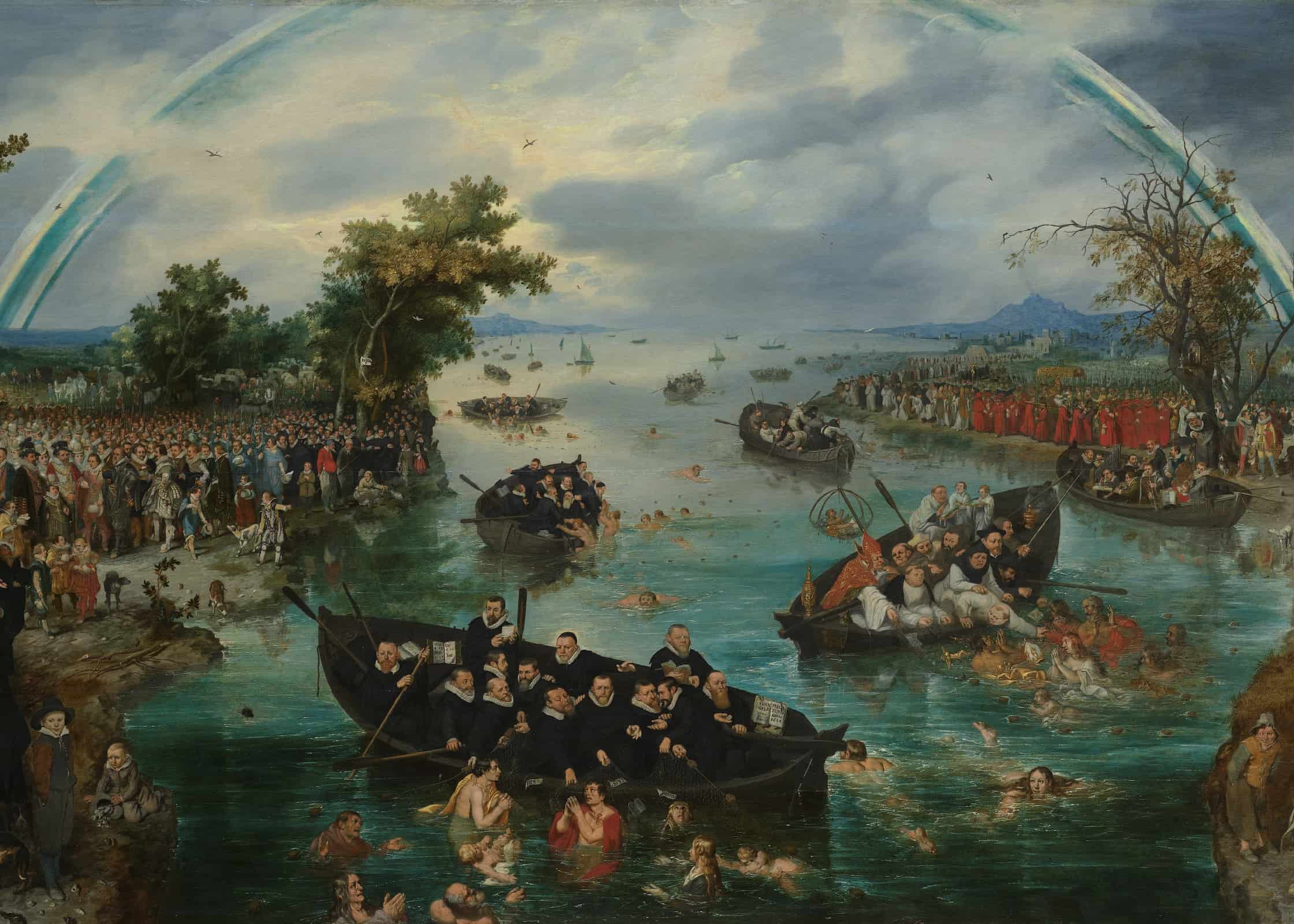
The reasons annexed to the second commandment, the more to enforce it, contained in these words, For I the Lord thy God am a jealous God, visiting the iniquity of the fathers upon the children unto the third and fourth generation of them that hate me; and showing mercy unto thousands of them that love me, and keep my commandments; are, besides God’s sovereignty over us, and propriety in us, his fervent zeal for his own worship, and his revengeful indignation against all false worship, as being a spiritual whoredom; accounting the breakers of this commandment such as hate him, and threatening to punish them into divers generations; and esteeming the observers of it such as love him and keep his commandments, and promising mercy to them unto many generations.
The third commandment is, Thou shalt not take the name of the Lord thy God in vain: for the Lord will not hold him guiltless that taketh his name in vain.
The third commandment requires, that the name of God, his titles, attributes, ordinances, the word, sacraments, prayer, oaths, vows, lots, his works, and whatsoever else there is whereby he makes himself known, be holily and reverently used in thought, meditation, word, and writing; by an holy profession, and answerable conversation, to the glory of God, and the good of ourselves and others.
The sins forbidden in the third commandment are, the not using of God’s name as is required; and the abuse of it in an ignorant, vain, irreverent, profane, superstitious, or wicked mentioning or otherwise using his titles, attributes, ordinances, or works, by blasphemy, perjury; all sinful cursings, oaths, vows, and lots; violating of our oaths and vows, if lawful; and fulfilling them, if of things unlawful; murmuring and quarreling at, curious prying into, and misapplying of God’s decrees and providences; misinterpreting, misapplying, or any way perverting the Word, or any part of it, to profane jests, curious or unprofitable questions, vain janglings, or the maintaining of false doctrines; abusing it, the creatures, or any thing contained under the name of God, to charms, or sinful lusts and practices; the maligning, scorning, reviling, or any wise opposing of God’s truth, grace, and ways; making profession of religion in hypocrisy, or for sinister ends; being ashamed of it, or a shame to it, by unconformable, unwise, unfruitful and offensive walking, or backsliding from it.
The reasons annexed to the third commandment, in these words, “The Lord thy God,” and “for the Lord will not hold him guiltless that taketh his name in vain” are, because he is the Lord and our God, therefore his name is not to be profaned or any way abused by us; especially because he will be so far from acquitting and sparing the transgressors of this commandment, as that he will not suffer them to escape his righteous judgment, albeit many such escape the censures and punishments of men.
The fourth commandment is, Remember the sabbath-day, to keep it holy. Six days shalt thou labor, and do all thy work; but the seventh day is the sabbath of the Lord thy God: in it thou shalt not do any work, thou, nor thy son, nor thy daughter, thy man-servant, nor thy maid-servant, nor thy cattle, nor thy stranger that is within thy gates. For in six days the Lord made heaven and earth, the sea, and all that in them is, and rested the seventh day: wherefore the Lord blessed the sabbath-day and hallowed it.
The outward and ordinary means whereby Christ communicates to his church the benefits of his mediation, are all his ordinances; especially the Word, Sacraments, and prayer: all which are made effectual to the elect for their salvation.
The Spirit of God maketh the reading, but especially the preaching of the Word, an effectual means of enlightening, convincing, and humbling sinners; of driving them out of themselves, and drawing them unto Christ; of conforming them to his image, and subduing them to his will; of strengthening them against temptations and corruptions; of building them up in grace, and establishing their hearts in holiness and comfort through faith unto salvation.
The fourth commandment requireth of all men the sanctifying or keeping holy to God such set times as he hath appointed in his word, expressly one whole day in seven; which was the seventh from the beginning of the world to the resurrection of Christ, and the first day of the week ever since, and so to continue to the end of the world; which is the Christian sabbath, and in the New Testament called The Lord’s Day.